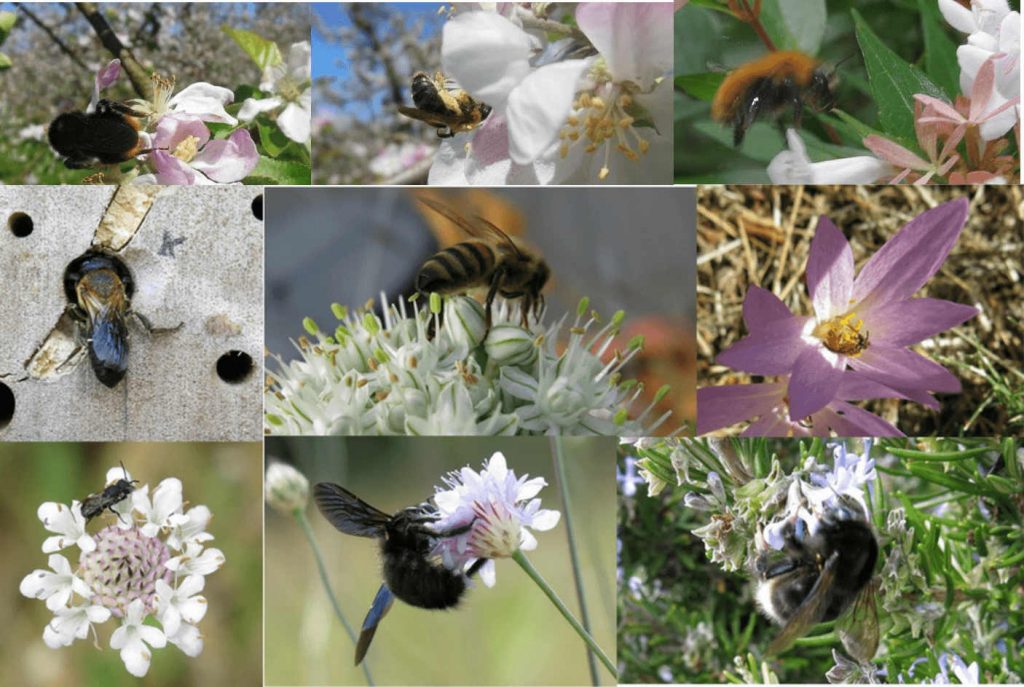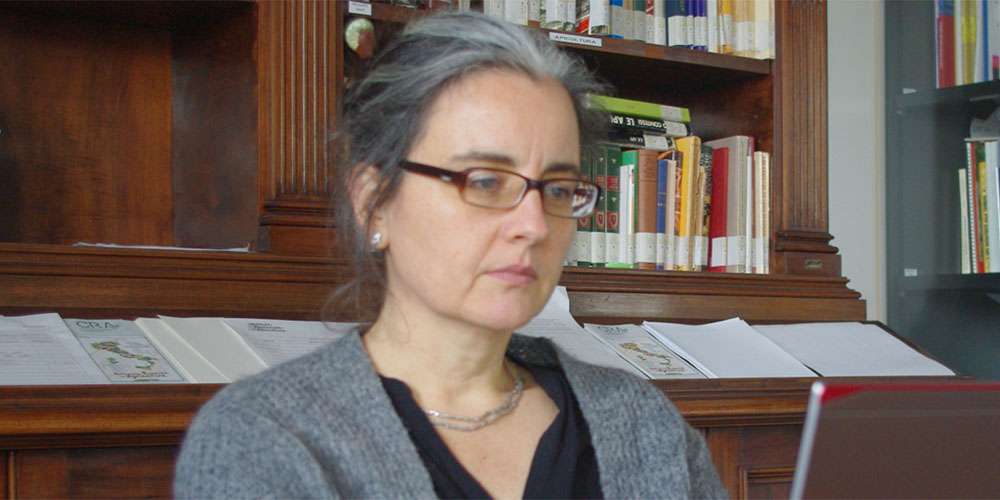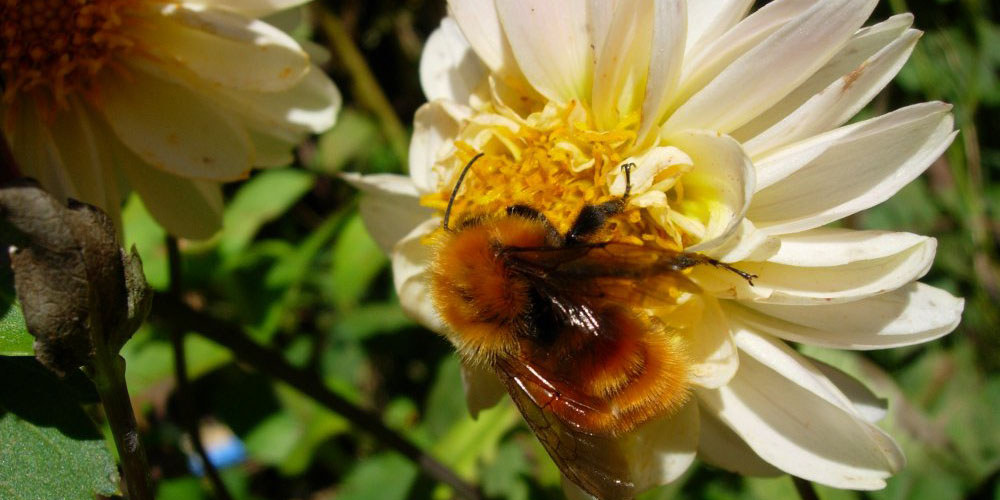Over my winter break, I tried to recap this crazy year that 2020 has been. The pandemic was the dominant influence for everybody. I had some diffuse thoughts in my head, about parallels in different fields of research. Watching this brilliant video by Medlife Crisis, everything kind of fell into place. Dr Rohin Francis is a cardiologist doing an amazing job in explaining medical science. With a decent amount of British humour. His word of the year 2020 is “uncertainty”. He says:
Biology doesn’t fit in a simple Newtonian model world of black and white.
Dr Rohin Francis from “Medlife Crisis”
I couldn’t agree more. Science is non-binary, it lives from diversity, from a multitude of shades of grey. This applies to a pandemic of a previously unknown disease as well as to any other area of biology. I answer questions like “How many bumblebee nests are there in a hectare of land?” or “How long does a bee live?” almost always with: “It depends.”
This is frustrating for the person asking, I know. But it’s an incredibly important concept to understand: there are no simple answers to complex systems. Simple in the sense of “There are always 10 bumblebee colonies per hectare.”, or “Bees live six weeks.” – because it depends. I won’t go into the factors now, these are only random examples. The point is that science doesn’t have absolute answers.
Non-binary science – uncertainty and changing conditions
That’s not a flaw. New facts change the picture and, therefore, insisting in “but yesterday you said bees live six weeks!” is childish if new data show that they live only three. Which are all invented numbers, just to be clear. This degree of uncertainty is something most people aren’t used to. And scientists – I include myself in this criticism – haven’t done the best job in explaining it. We’re used to it. It’s the curse of knowledge that it’s difficult to understand that others don’t know what you think is absolutely obvious.
This pandemic made clear how important it is to communicate about uncertainty. It’s not to avoid clear answers or definite positions. It’s because our world is complex: tutorials and personal practices won’t help everyone in continuously changing conditions. But if you know about the uncertainty, you will develop tools to deal with it. If you read my posts for any given time, you know that I don’t like oversimplifying. It sometimes even makes me angry. Not because of perfectionism. But because of respect.
I actually got the question “How many bumblebee nests are there per hectare?” from a student of agriculture during my time at the University of Hohenheim. I said “It depends!” and gave him some factors on what. This hopefully made him understand that in biology – and also agriculture – there aren’t always linear answers. When saying “it depends” to beekeepers or one of my clients, I give examples that apply to their reality. People understand complex things, if you explain them. Because they aren’t dumb. They just can’t know certain things if nobody told them. But if you give these simplistic answers, one-fit-all solutions for complex problems, you treat people as if they were dumb. This is what makes me angry.
How all this applies to bees
In my opinion, there’s a large difference between making things accessible and simplifying. Uncertainty is everywhere in our lives and most of us know that. It begins with “will this new recipe turn out well?” or “will I still arrive in time with this gigantic traffic jam?” Unexpected things happen. Every day. And the consequences won’t always be the same, only because you were in the same situation in the past.
Applied to bees this means: a seed mixture for flowering strips that does excellent at one site and attracts many different bee species could be a total failure at another place. Because the soil conditions are different, the sun exposure, the availability of nesting habitat etc. This is one of the reason why I put “save the bees” always in quotation marks. Not every flower praised as bee-friendly really is or will do well in every garden. Beekeeping will give you an insight in the world of honey bees. Which is only one of 20,000 bee species. In addition, honey bees are an exception at so many levels.
The thing is, “saving the bees” isn’t impossible, but it needs some effort. More than only signing a petition to ban all pesticides alone. You’ll have to learn some things. Like good practices in beekeeping to not only enjoy your own honey but keeping colonies healthy. By this, you won’t put other bee species at risk by honey bee diseases. Or to recognize that some plants in your garden are invasive and harm natural habitat. Despite your honey bees loving them, they do more harm than good sometimes. Get used to this uncertainty. It will help you to recognise scam like “all-natural, easy to use and 100% efficient!”.
Improving communication of uncertainty
As I said, I include myself in the criticism of not explaining uncertainty well enough. I try to do it in this blog and in social media posts, but I have to do better. In the coming year of 2021, I commit to approach things more from the “it depends” perspective. This finally also gives me a better structure to describe my services. Until now, the texts doing so are quite short and not very clear. I’ll change that in the course of the coming weeks. I will include this aspect also when I discuss scientific papers as I usually do in this blog.
In addition, I’ll start a series of courses in 2021. I’m not quite sure about the topics and/or target audience to start with. If you have any questions on topics related to bee health (in the broader sense of all bee species), on what you can do to “save the bees” or anything else I discuss on this blog, let me know in the comments. The long-term aim is a “BeeSafeAcademy”. I’ve always enjoyed teaching. The compliments I value the most in my life were always related to the way I explain things. 2020 taught me that this is more important than I thought to get science out in the world. To make it accessible. You’re allowed to keep me accountable on that.
Oh my, now I made the commitment… There are several formats and things to try out and technical things to learn. So, this won’t be something easy to do. But let’s say… a first webinar in April? If you want to stay updated on any courses, webinars etc. or want to stay on top of the things I help you with to “save the bees”: Subscribe to my newsletter, the Bee Surgery Hours. You can do so in the form below.



